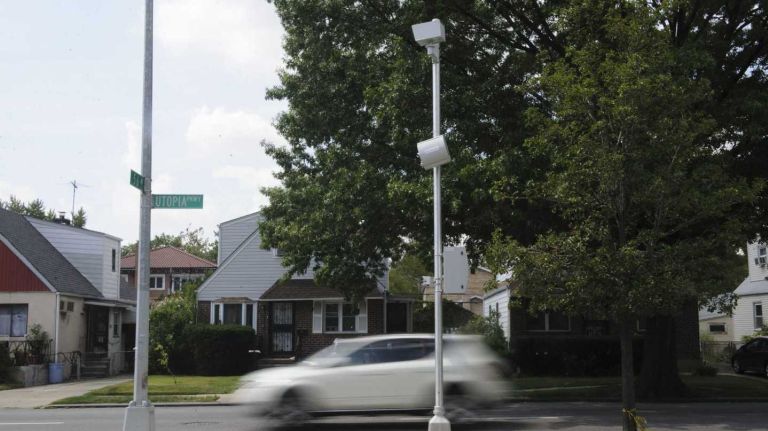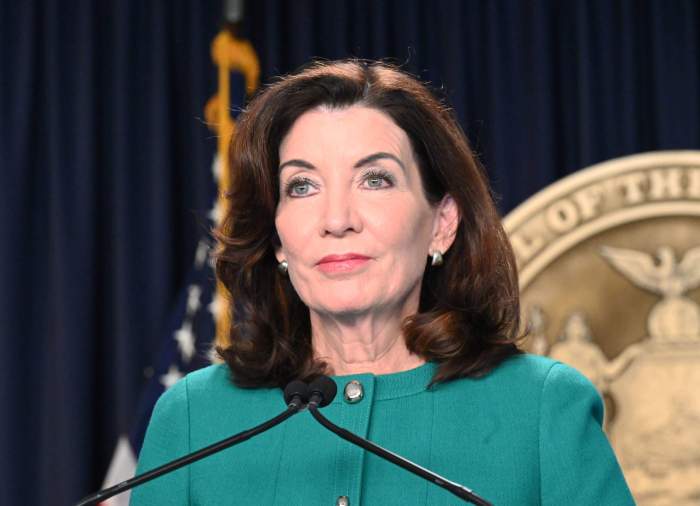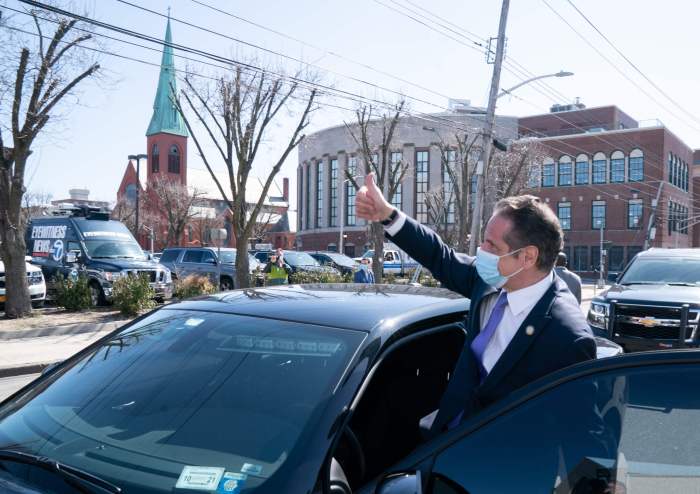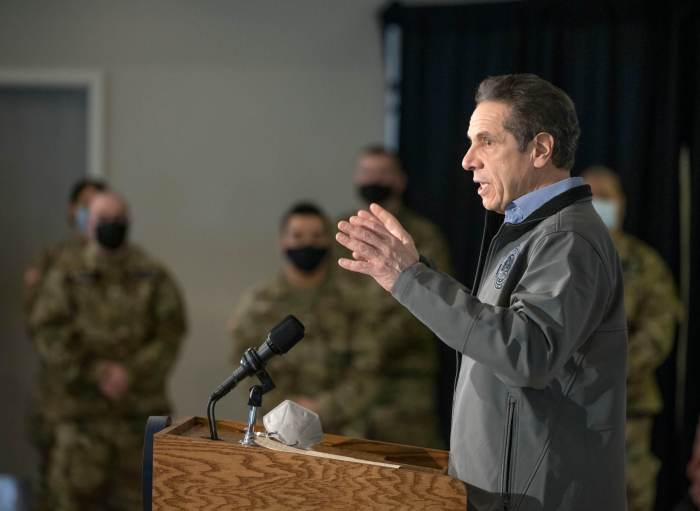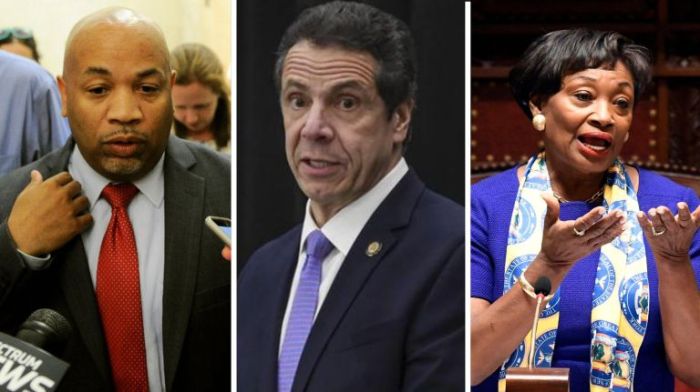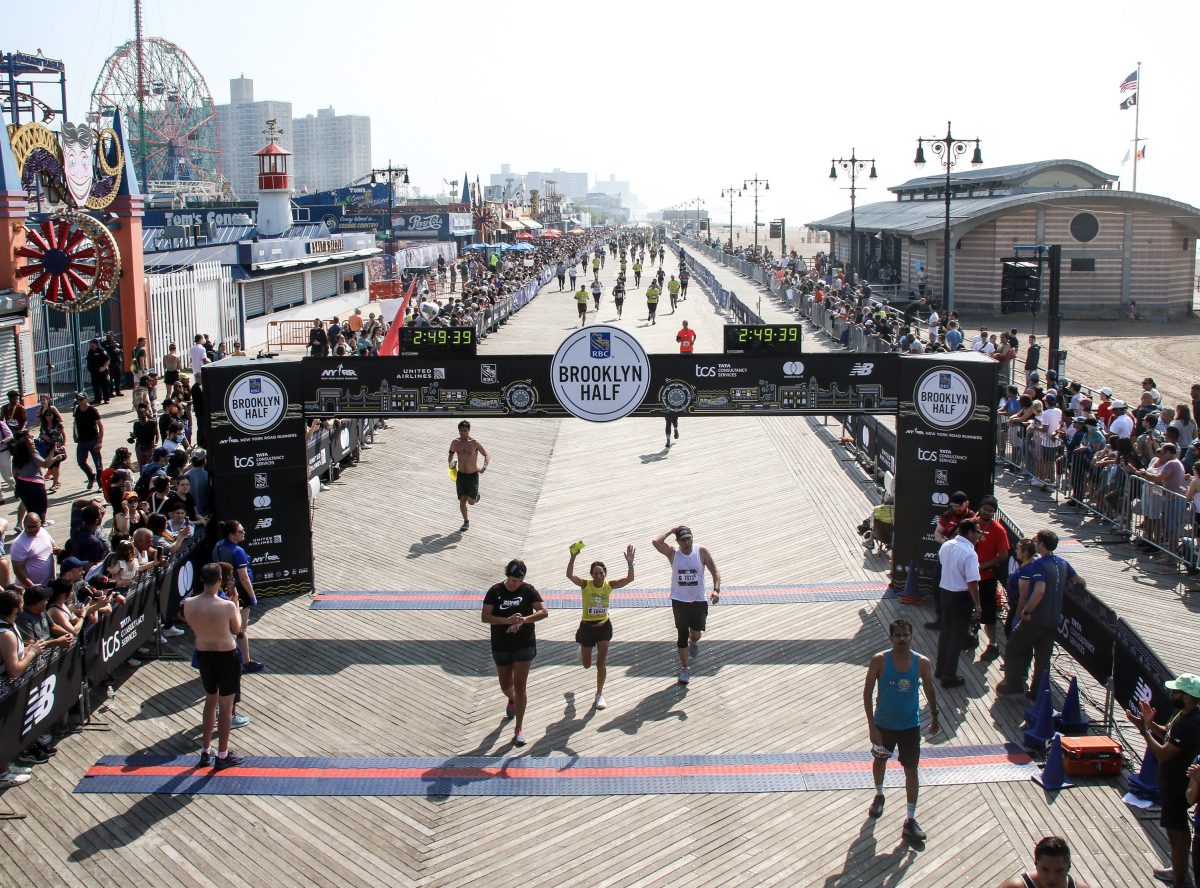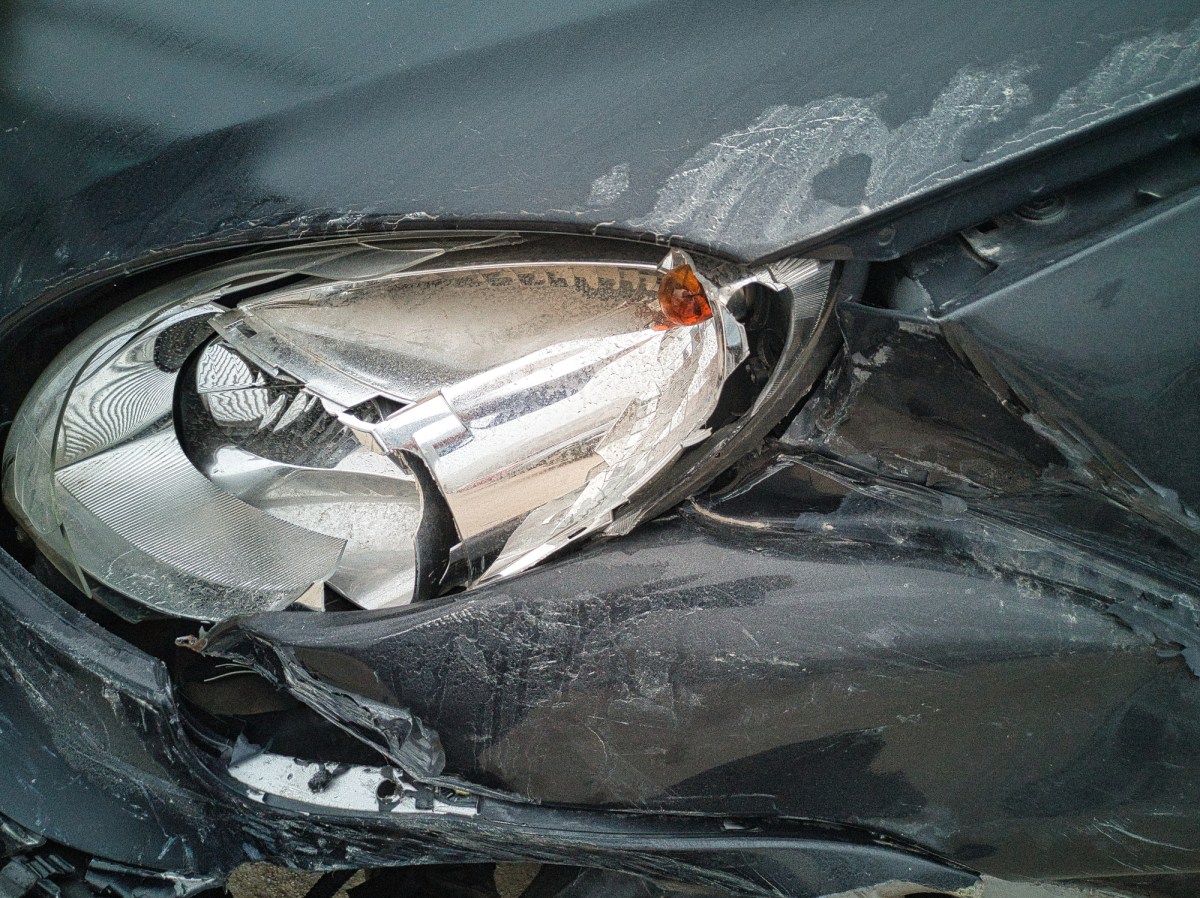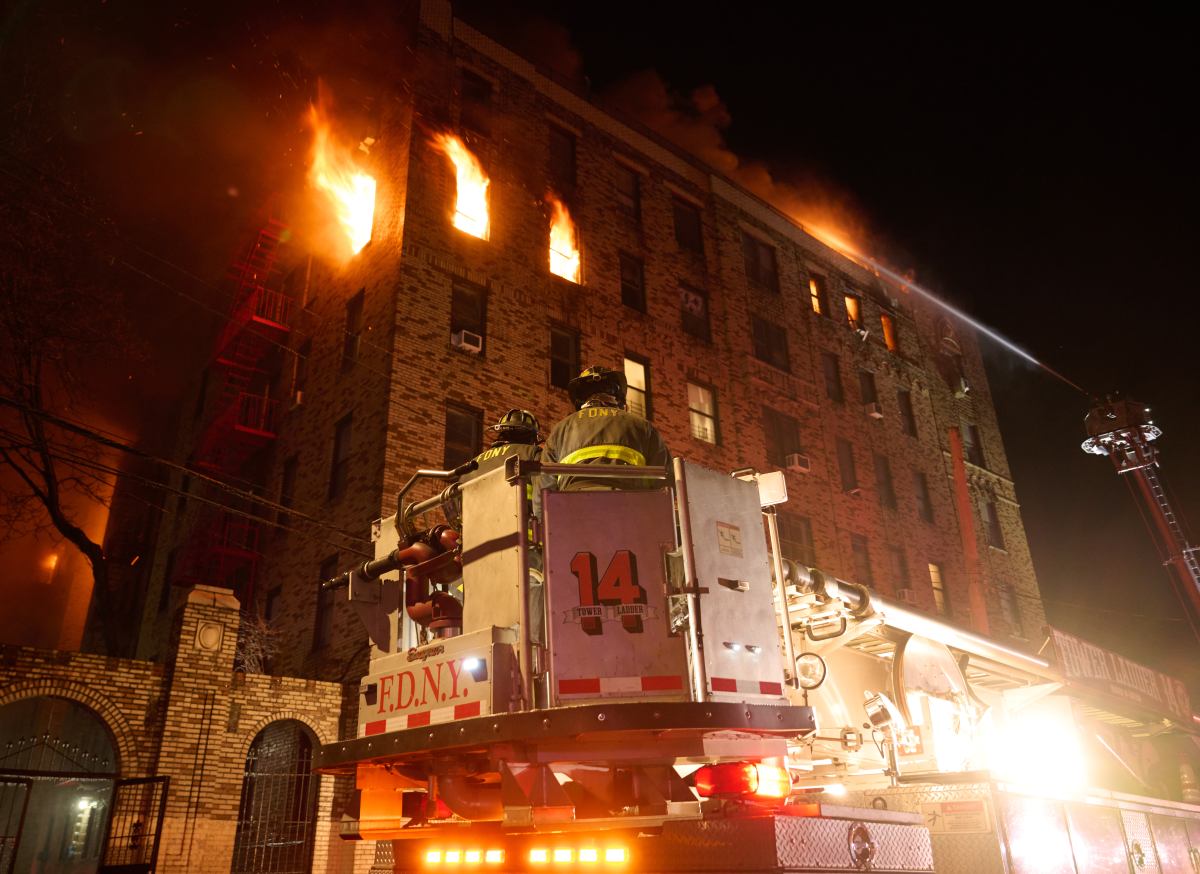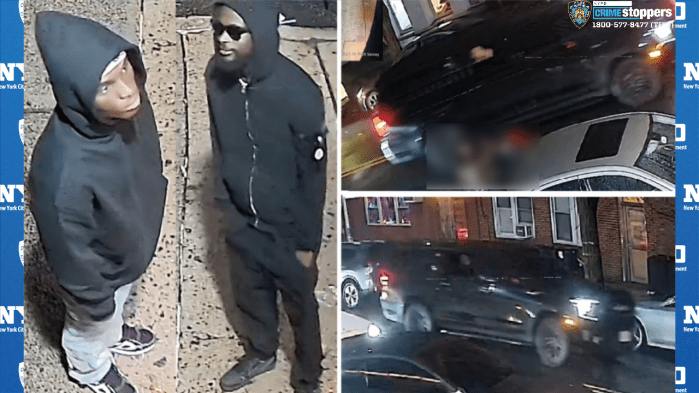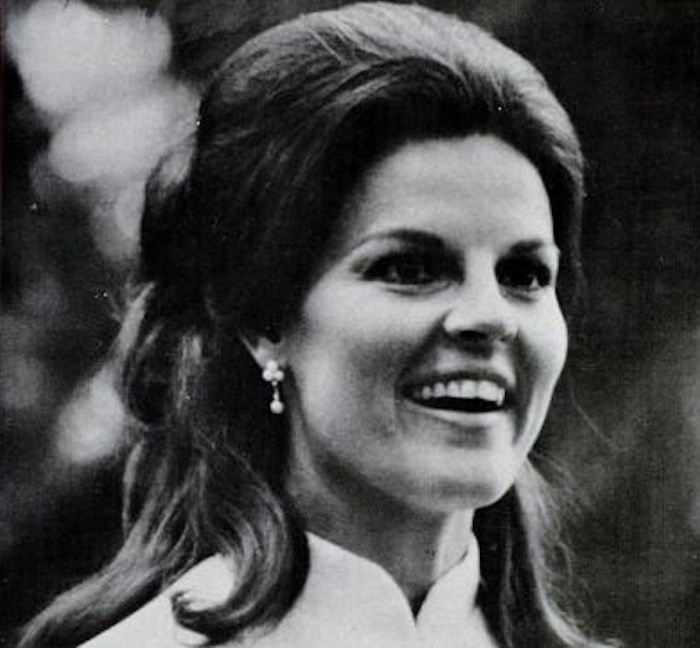The proposal to extend New York City’s speed camera program for another three years and expand it to run every day and around the clock easily passed in the state Senate Tuesday evening.
The bill passed the upper chamber with 51 votes for and 12 against on May 31, and heads to the Assembly next for a final vote some time before the legislative session ends and lawmakers leave Albany Thursday.
“We are going to see a marked reduction in traffic violence on our streets at a time when traffic deaths are at their highest in a decade,” said the bill’s sponsor, Brooklyn state Senator Andrew Gounardes on the state Senate floor.
If passed and signed by Governor Kathy Hochul, the law will allow New York City to keep running its nearly 2,000 speed cameras across 750 so-called school zones until July 1, 2025.
While it remained unclear whether the bill would come up for a vote in the Assembly later on Wednesday or Thursday, the bill’s sponsor in that chamber, Deborah Glick (D–Manhattan), said it would happen before lawmakers leave the state capitol this week.
“It will be voted on before we leave,” Glick told amNewYork Metro.
The speed camera scheme dates back to 2013 and is currently set to expire by the end of June.
The speed camera program has for years been limited to areas within a quarter-mile radius of a school, and officials can only issue $50 fines to lead-footed drivers going 11 miles-per-hour above the limit or faster between 6 a.m.–10 p.m. on weekdays.
The city’s Department of Transportation currently can’t use the cameras to ticket Gotham’s speed demons overnight or on weekends.
The off-hours account for 59% of traffic deaths, and in places where the city installed the automated enforcement tech, speeding declined by 72%, and traffic deaths dropped 55% during hours of operation.
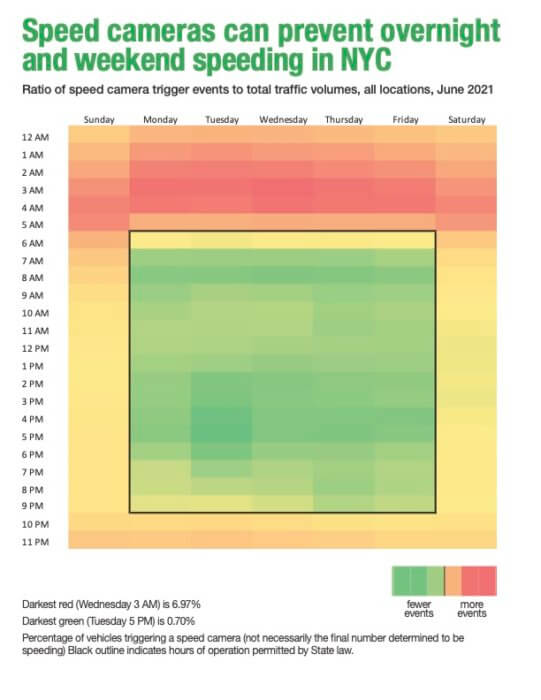
The city has lobbied state lawmakers for months to keep the program going, as crash fatalities have continued rise under the Mayor Eric Adams Administration, following a record year of road deaths under the former Mayor Bill de Blasio administration in 2021.
Mayor Adams had originally hoped to get “home rule” from Albany, allowing the Big Apple full control over its speed cameras rather than having to shlep to Albany every few years to beg for its renewal.
But state pols were not into that idea and the administration botched negotiations by floating changes to the proposed law in the 11th hour, which one source described to the Daily News as a “total f— up.”
During negotiations, state politicians also pulled some of the originally proposed law’s teeth for punishing repeat speeders, Streetsblog reported, including requiring the Department of Motor Vehicles to inform insurers about the recidivists, suspending registrations for three months, escalating fines, and getting camera tickets on a driver’s record.
The dozen opponents during Tuesday’s vote were almost all Republicans from upstate New York or Long Island, except for Democrat Simcha Felder, who represents parts of southern Brooklyn.
GOP state Senator Andrew Lanza from Staten Island called the speed camera program a “money grab,” saying the city shot down a proposal of his to instead put more red lights and stop signs at known dangerous intersections.
“I understand that at some level speed cameras can be about safety, and I understand that’s where the sponsor’s coming from, and I know the city is pushing this,” said Lanza, “but my experience with how the city has gone about doing this proves that they don’t give a darn about safety, and they only care about picking the pockets of New Yorkers.”
Gounardes countered that the revenues from the cameras amounted to $20 million a year, a fraction of the annual $100 billion municipal budget and of the $1.5 billion city officials have spent on Vision Zero over the past eight years.
“If this is a tax, it’s the easiest tax to evade, because the easiest way to evade paying this is not to speed 11 miles or more over the speed limit,” Gounardes said.



